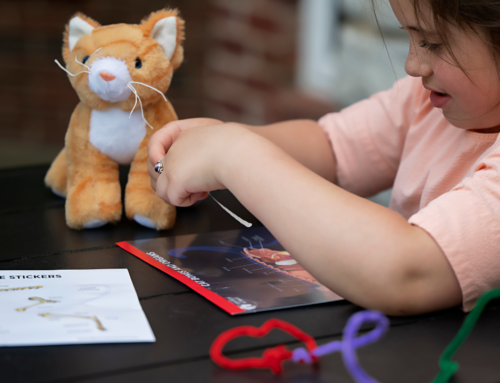Supporting Your Child’s Mental Health This Winter
Winter, characterized by shorter daylight hours and colder temperatures, can sometimes impact our children’s mood and overall mental well-being. At Little Medical School, we are dedicated to nurturing not just physical health but also mental and emotional wellness. Here are some practical strategies to help your child stay mentally healthy during the winter months.
1. Encourage Physical Activity
Physical activity plays a critical role in maintaining mental health. It triggers the release of endorphins, known as the body’s natural mood enhancers, and helps regulate a healthy sleep cycle. If outdoor activities aren’t feasible due to cold weather, try indoor ones. Our “Little Sports Medicine” kit offers enjoyable activities that teach children about sports safety and first aid while keeping them physically engaged.
2. Maintain a Consistent Sleep Routine
Quality sleep is vital for a child’s mood stability and cognitive functioning. A consistent sleep schedule ensures that your child is well-rested. Make sure they have a quiet and comfortable environment for sleep, and establish a routine that includes winding down activities before bedtime.
3. Promote Healthy Eating Habits
A balanced diet rich in fruits, vegetables, lean proteins, and whole grains can significantly affect mood and energy levels. Make sure your child eats healthily, even when it’s tempting to indulge in comfort foods during the colder months.
4. Foster Open Communication
Creating an environment where your child feels comfortable expressing their feelings is key to understanding and managing emotions. Regular conversations can help them navigate their feelings and provide them with the tools to handle challenging situations.
5. Limit Screen Time
Excessive screen time can disrupt sleep and increase feelings of anxiety or depression. Encourage your child to engage in hands-on activities instead. Our Little Medical School kits offer an educational and entertaining alternative to screen time.
6. Seek Professional Help if Needed
If your child appears persistently sad, anxious or shows significant changes in behavior or school performance, it might be time to seek professional help. Don’t hesitate to contact a pediatrician or a child mental health professional.
At Little Medical School, we aim to inspire healthy habits and foster a passion for lifelong learning. By incorporating these strategies into your routine, you can support your child’s mental health throughout the winter months. Remember, every child is unique, so what works for one might not work for another. The key is patience, support, and consistency.
Sources: Little Medical School The Impact of Physical Activity on Your Mental Health Diet and mental health







Leave A Comment
You must be logged in to post a comment.